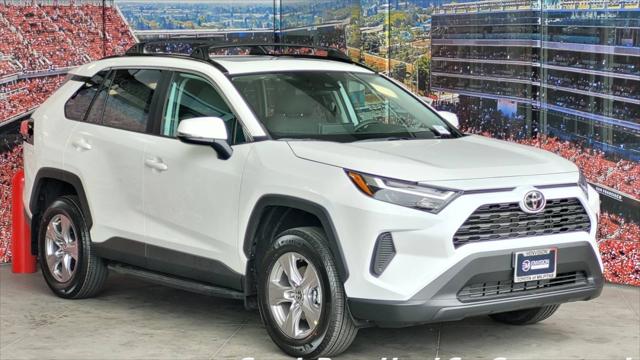How Autonomous Vehicles Are Changing the World
In the past few decades, the world has witnessed technological advancements that have redefined the way we live, work, and interact with our surroundings. Among these innovations, autonomous vehicles (AVs) stand out as a game-changer for transportation, logistics, and urban development. From self-driving cars to automated delivery drones, AVs are reshaping industries, influencing city designs, and transforming societal norms. But how exactly are autonomous vehicles changing the world? Let’s dive in to explore this exciting revolution. 2021 TOYOTA HILUX 2.4 DOUBLE CAB

1. Revolutionizing Transportation and Mobility
One of the most significant impacts of autonomous vehicles is their potential to revolutionize how we travel. Self-driving cars offer a vision of mobility that is safer, more efficient, and accessible.
- Safety on the Roads: According to the World Health Organization, over 1.3 million people die in road traffic accidents every year. Human error is a leading cause, but AVs equipped with advanced sensors and real-time decision-making algorithms significantly reduce the risk of accidents. These vehicles can detect obstacles, adhere to traffic laws, and avoid collisions, paving the way for safer roads.
- Increased Accessibility: Autonomous vehicles promise newfound freedom for individuals who are unable to drive, such as the elderly, people with disabilities, and those without a driver’s license. With AVs, mobility becomes a universal right, reducing dependency on others for transportation.
- Traffic Optimization: AVs communicate with each other and their environment to reduce traffic congestion. By optimizing routes and eliminating human-driven inefficiencies, autonomous systems ensure smoother and faster commutes.
2. Transforming the Logistics and Delivery Sector
The logistics industry is undergoing a massive transformation, thanks to autonomous vehicles. From freight trucks to delivery robots, automation is creating a ripple effect across supply chains.
- Enhanced Efficiency: Self-driving trucks can operate 24/7 without the need for breaks, significantly reducing delivery times. This is particularly beneficial for e-commerce and perishable goods industries.
- Cost Reduction: Labor costs constitute a substantial portion of logistics expenses. By replacing or assisting human drivers with AVs, businesses can save billions of dollars annually.
- Sustainability: Autonomous vehicles often operate using electric power, reducing the carbon footprint of transportation. Additionally, their optimized routing systems lower fuel consumption and emissions.
3. Redefining Urban Development
As AVs gain traction, cities are rethinking their infrastructure to accommodate this new mode of transportation. Autonomous vehicles influence urban planning in profound ways.
- Reclaiming Urban Space: Traditional cars require parking lots and garages, which occupy vast amounts of land. AVs, however, can drop passengers off and park themselves in more remote locations, freeing up valuable urban real estate for parks, housing, and recreational areas.
- Dynamic Traffic Systems: Cities are investing in smart infrastructure, including connected traffic lights and dedicated AV lanes. This enhances the flow of autonomous vehicles while maintaining harmony with traditional traffic.
- Reduced Vehicle Ownership: With the rise of autonomous ride-sharing services, individuals are less likely to own personal vehicles. This shift can reduce the number of cars on the road, further easing congestion.
4. Boosting Productivity
Autonomous vehicles are not just about mobility—they’re about time. Imagine commuting to work without having to keep your hands on the wheel or your eyes on the road.
- Work On-the-Go: AVs turn commutes into productive time. Passengers can respond to emails, attend virtual meetings, or simply relax during their journey.
- Improved Work-Life Balance: By reducing the stress associated with driving, AVs contribute to improved mental health and work-life balance.
- New Business Opportunities: The autonomous vehicle industry itself is creating jobs in AI development, cybersecurity, maintenance, and infrastructure design. Best used car websites
5. Challenges and Ethical Considerations
While the benefits of AVs are undeniable, the journey to widespread adoption is not without challenges. Addressing these concerns is essential for the successful integration of autonomous vehicles into society.
- Regulatory Hurdles: Governments worldwide are grappling with how to regulate AVs. Establishing safety standards, liability rules, and ethical guidelines is a complex task.
- Cybersecurity Risks: Autonomous vehicles rely on data and connectivity, making them vulnerable to cyberattacks. Ensuring robust security measures is crucial.
- Job Displacement: Automation in transportation could impact millions of jobs, particularly for drivers in the logistics and taxi industries. Reskilling and upskilling programs are needed to mitigate these effects.
- Ethical Dilemmas: AVs must make split-second decisions in critical situations. For example, how should a vehicle prioritize safety in an unavoidable accident? These ethical dilemmas require careful consideration and programming.
6. The Road Ahead
The adoption of autonomous vehicles is accelerating, with numerous companies and governments investing heavily in research and deployment. Companies like Tesla, Waymo, and others are leading the charge, while countries such as the U.S., China, and Germany are setting the stage for AV-friendly policies.
- Autonomous Public Transit: Cities like Singapore and Dubai are already testing autonomous buses and taxis. These systems promise to make public transit more reliable and efficient.
- Self-Driving Delivery Services: Retail giants like Amazon are using autonomous drones and robots for last-mile deliveries, making shopping more convenient than ever.
- Global Reach: While developed nations are at the forefront, developing countries are exploring the potential of AVs to bridge infrastructure gaps and improve rural connectivity.

How Autonomous Vehicles Are Changing the World Conclusion
Autonomous vehicles are not just a technological advancement—they are a societal shift. By improving safety, efficiency, and accessibility, they hold the potential to transform how we live and work. However, the path to full-scale adoption requires overcoming significant challenges, from ethical considerations to regulatory frameworks.
At T-More Auto Machinery, we are excited to be part of this revolution, providing the machinery and expertise needed to build the autonomous future. Whether it’s cutting-edge technology or innovative solutions, we are committed to shaping a smarter, more connected world.
The age of autonomous vehicles is here, and it’s changing the world, one journey at a time. Stay tuned to our blog for more insights into how technology continues to redefine our lives.









 ford ranger for sale
ford ranger for sale